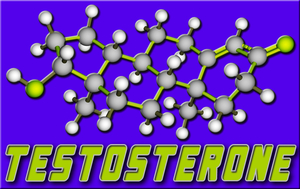Introduction to Cross-Country Skiing and Knee Health
Cross-country skiing, a popular winter sport among American males, combines endurance, strength, and technique. However, the repetitive nature of the sport places significant stress on the knees, making knee health a critical concern for athletes. This article delves into the specific knee health issues faced by cross-country skiers and offers strategies for prevention and management.
Common Knee Injuries in Cross-Country Skiing
Cross-country skiing often leads to overuse injuries due to the repetitive motion involved. The most common knee injuries among skiers include patellofemoral pain syndrome, medial collateral ligament (MCL) sprains, and meniscal tears. Patellofemoral pain, often referred to as "runner's knee," is caused by the repetitive impact and strain on the knee cap. MCL sprains can occur from sudden twists or falls, while meniscal tears may result from the rotational forces experienced during skiing.
Prevention Strategies for Knee Injuries
Preventing knee injuries is paramount for maintaining an athlete's performance and longevity in cross-country skiing. Key prevention strategies include:
- **Proper Technique:** Learning and maintaining correct skiing techniques can significantly reduce the risk of knee injuries. Working with a certified coach to ensure proper form is essential.
- **Strength Training:** Strengthening the muscles around the knee, particularly the quadriceps, hamstrings, and calves, can provide better support and stability. Incorporating exercises like squats, lunges, and leg presses into a regular fitness routine is beneficial.
- **Flexibility and Mobility:** Regular stretching and mobility exercises can help maintain the flexibility of the muscles and tendons around the knee, reducing the risk of strains and sprains.
- **Appropriate Equipment:** Using well-fitted skis and boots that provide adequate support can also play a crucial role in preventing injuries. Ensuring that equipment is maintained and adjusted as needed is important.
Management and Treatment of Knee Injuries
Despite best efforts, knee injuries can still occur. When they do, prompt and appropriate management is crucial for a full recovery. Treatment options may include:
- **Rest and Ice:** Initial treatment often involves rest and the application of ice to reduce inflammation and pain.
- **Physical Therapy:** A tailored physical therapy program can help restore strength, flexibility, and function to the knee. Physical therapists can provide exercises and stretches specifically designed to aid recovery.
- **Medication:** Anti-inflammatory medications may be prescribed to manage pain and swelling.
- **Surgery:** In cases of severe injuries, such as significant meniscal tears or ligament ruptures, surgical intervention may be necessary. Advances in surgical techniques have improved outcomes for athletes.
The Role of Nutrition in Knee Health
Nutrition plays a vital role in supporting overall health and recovery from injuries. For cross-country skiers, a diet rich in anti-inflammatory foods can help manage knee pain and inflammation. Foods high in omega-3 fatty acids, such as salmon and walnuts, along with fruits and vegetables rich in antioxidants, can contribute to better joint health. Additionally, maintaining a healthy weight can reduce the stress on the knees during skiing.
Conclusion: Maintaining Knee Health for Long-Term Skiing Success
For American male cross-country skiers, maintaining knee health is essential for continued enjoyment and success in the sport. By understanding the common injuries, implementing effective prevention strategies, and managing injuries appropriately, athletes can minimize the risk of knee problems. A holistic approach that includes proper technique, strength training, flexibility, appropriate equipment, and nutrition will support long-term knee health and enhance overall performance on the slopes.
Contact Us Today For A Free Consultation

- Preventing Ankle Injuries in American Male Volleyball Players: A Comprehensive Guide [Last Updated On: February 18th, 2025] [Originally Added On: February 18th, 2025]
- Sports Medicine: Essential for American Male Triathletes' Performance and Health [Last Updated On: March 16th, 2025] [Originally Added On: March 16th, 2025]
- Wrist Injuries in Snowboarding: Types, Mechanisms, and Prevention for American Males [Last Updated On: March 17th, 2025] [Originally Added On: March 17th, 2025]
- Sports Medicine Innovations Aid American Male Rowers with Lower Back Pain [Last Updated On: March 17th, 2025] [Originally Added On: March 17th, 2025]
- Sports Medicine's Role in Preventing Overuse Injuries Among American Male Climbers [Last Updated On: March 18th, 2025] [Originally Added On: March 18th, 2025]
- Optimizing Recovery for American Male Martial Artists: Nutrition, Techniques, and Mental Health [Last Updated On: March 18th, 2025] [Originally Added On: March 18th, 2025]
- Sports Medicine's Vital Role in Injury Management for American Male Figure Skaters [Last Updated On: March 18th, 2025] [Originally Added On: March 18th, 2025]
- Sports Medicine's Crucial Role in BMX Rider Recovery and Rehabilitation [Last Updated On: March 19th, 2025] [Originally Added On: March 19th, 2025]
- Hamstring Injuries in American Male Sprinters: Treatment, Rehabilitation, and Prevention Strategies [Last Updated On: March 21st, 2025] [Originally Added On: March 21st, 2025]
- Sports Medicine Enhances Performance and Health in American Male Water Polo Athletes [Last Updated On: March 21st, 2025] [Originally Added On: March 21st, 2025]
- Surfing Injuries in American Males: Prevention, Treatment, and Sports Medicine Advances [Last Updated On: March 21st, 2025] [Originally Added On: March 21st, 2025]
- Sports Medicine Innovations Aid American Male Cyclists with Hip Issues [Last Updated On: March 21st, 2025] [Originally Added On: March 21st, 2025]
- Knee Health Strategies for American Male Ultimate Frisbee Players [Last Updated On: March 21st, 2025] [Originally Added On: March 21st, 2025]
- Sports Medicine Enhances Performance and Health in American Male Polo Players [Last Updated On: March 22nd, 2025] [Originally Added On: March 22nd, 2025]
- Sports MedicineTransforms CrossFit: Enhancing Performance and Safety for American Male Athletes [Last Updated On: March 23rd, 2025] [Originally Added On: March 23rd, 2025]
- Rotator Cuff Injuries in American Male Swimmers: Diagnosis, Treatment, and Prevention [Last Updated On: March 23rd, 2025] [Originally Added On: March 23rd, 2025]
- Preventing Shoulder Injuries in Lacrosse Goalies: Innovative Sports Medicine Techniques [Last Updated On: March 23rd, 2025] [Originally Added On: March 23rd, 2025]
- Sports Medicine Enhances Performance and Longevity in American Male Fencers [Last Updated On: March 23rd, 2025] [Originally Added On: March 23rd, 2025]
- Sports Medicine's Role in Enhancing American Male Badminton Players' Careers [Last Updated On: March 23rd, 2025] [Originally Added On: March 23rd, 2025]
- Managing Tendonitis in American Male Tennis Players: Sports Medicine Approaches [Last Updated On: March 23rd, 2025] [Originally Added On: March 23rd, 2025]
- Sports Medicine's Vital Role in American Male Rugby Sevens Performance and Health [Last Updated On: March 23rd, 2025] [Originally Added On: March 23rd, 2025]
- Sports Medicine Advances Enhancing Baseball Pitchers' Career Longevity [Last Updated On: March 24th, 2025] [Originally Added On: March 24th, 2025]
- Ankle Health Strategies for American Male Beach Volleyball Players [Last Updated On: March 24th, 2025] [Originally Added On: March 24th, 2025]
- Sports Medicine's Role in Preventing Shin Splints in American Male Runners [Last Updated On: March 24th, 2025] [Originally Added On: March 24th, 2025]
- Sports Medicine Benefits for American Male Table Tennis Players: Performance and Health [Last Updated On: March 24th, 2025] [Originally Added On: March 24th, 2025]
- Ankle Health Strategies for American Male Basketball Point Guards: Prevention to Rehabilitation [Last Updated On: March 25th, 2025] [Originally Added On: March 25th, 2025]
- Preventing Hamstring Injuries in American Male Soccer Midfielders: A Comprehensive Approach [Last Updated On: March 25th, 2025] [Originally Added On: March 25th, 2025]
- Sports Medicine Revolutionizes Performance and Health for American Male Cyclists [Last Updated On: March 25th, 2025] [Originally Added On: March 25th, 2025]
- Sports Medicine Revolutionizes Training and Performance in American Male Handball [Last Updated On: March 25th, 2025] [Originally Added On: March 25th, 2025]
- Sports Medicine Advances Enhance Injury Management for American Male Field Hockey Players [Last Updated On: March 26th, 2025] [Originally Added On: March 26th, 2025]
- Preventing Stress Fractures in Male Runners: A Sports Medicine Approach [Last Updated On: March 26th, 2025] [Originally Added On: March 26th, 2025]
- Sports Medicine's Impact on Recovery Times in American Male Ice Hockey Players [Last Updated On: March 26th, 2025] [Originally Added On: March 26th, 2025]
- Sports Medicine: Essential for American Male Rugby Forwards' Health and Performance [Last Updated On: March 26th, 2025] [Originally Added On: March 26th, 2025]
- Preventing Back Injuries in American Male Rowers: A Sports Medicine Approach [Last Updated On: March 26th, 2025] [Originally Added On: March 26th, 2025]
- Sports Medicine Strategies for Recovery in American Football Wide Receivers [Last Updated On: March 26th, 2025] [Originally Added On: March 26th, 2025]
- Sports Medicine Advances Extend Careers of American Baseball Outfielders [Last Updated On: March 26th, 2025] [Originally Added On: March 26th, 2025]
- Optimal Recovery Strategies for American Male Soccer Forwards: A Comprehensive Guide [Last Updated On: March 26th, 2025] [Originally Added On: March 26th, 2025]
- Optimizing Recovery for American Male Soccer Goalkeepers: A Holistic Sports Medicine Approach [Last Updated On: March 27th, 2025] [Originally Added On: March 27th, 2025]
- Lacrosse Midfielders' Hip Injuries: Sports Medicine Advances and Rehabilitation Strategies [Last Updated On: March 27th, 2025] [Originally Added On: March 27th, 2025]
- Sports Medicine's Vital Role in Soccer Defenders' Recovery and Performance [Last Updated On: March 27th, 2025] [Originally Added On: March 27th, 2025]
- Sports Medicine Enhances Safety and Performance in American Male Trampoline Gymnastics [Last Updated On: March 27th, 2025] [Originally Added On: March 27th, 2025]
- Optimizing Muscle Health for American Male Speed Skaters: A Comprehensive Guide [Last Updated On: March 27th, 2025] [Originally Added On: March 27th, 2025]
- Lacrosse Shoulder Injuries: Sports Medicine's Role in Prevention and Treatment for Attackmen [Last Updated On: March 27th, 2025] [Originally Added On: March 27th, 2025]
- Managing Groin Injuries in American Male Hockey Players: Diagnosis, Treatment, and Prevention [Last Updated On: March 28th, 2025] [Originally Added On: March 28th, 2025]
- Sports Medicine's Role in Enhancing Volleyball Performance and Health for American Males [Last Updated On: March 28th, 2025] [Originally Added On: March 28th, 2025]
- Sports Medicine Benefits for American Male Track and Field Athletes: Performance and Recovery [Last Updated On: March 28th, 2025] [Originally Added On: March 28th, 2025]
- Sports Medicine's Vital Role in Managing Injuries of American Male Swimmers [Last Updated On: March 28th, 2025] [Originally Added On: March 28th, 2025]
- Knee Health Essentials for American Football Running Backs: Prevention and Recovery Strategies [Last Updated On: March 29th, 2025] [Originally Added On: March 29th, 2025]
- Sports Medicine's Impact on Basketball Forwards: Performance, Health, and Career Longevity [Last Updated On: March 29th, 2025] [Originally Added On: March 29th, 2025]
- Sports Medicine Enhances Performance and Health in American Male Cycling [Last Updated On: March 29th, 2025] [Originally Added On: March 29th, 2025]
- Preventing Achilles Tendon Injuries in American Male Runners: A Sports Medicine Approach [Last Updated On: March 30th, 2025] [Originally Added On: March 30th, 2025]
- Sports Medicine's Vital Role in Enhancing American Male Swimmers' Performance and Health [Last Updated On: April 1st, 2025] [Originally Added On: April 1st, 2025]
- Sports Medicine's Role in Enhancing American Male Volleyball Players' Performance and Career Longevity [Last Updated On: April 1st, 2025] [Originally Added On: April 1st, 2025]
- Knee Health Strategies for American Male Cross-Country Skiers [Last Updated On: April 5th, 2025] [Originally Added On: April 5th, 2025]
- Sports Medicine Benefits for American Male Track and Field Athletes: Performance and Longevity [Last Updated On: April 5th, 2025] [Originally Added On: April 5th, 2025]
- Preventing Hamstring Injuries in American Male Soccer Midfielders: A Sports Medicine Approach [Last Updated On: April 5th, 2025] [Originally Added On: April 5th, 2025]
- Groin Injuries in Hockey: Diagnosis, Treatment, and Prevention Strategies [Last Updated On: April 6th, 2025] [Originally Added On: April 6th, 2025]
- Sports Medicine: Enhancing Performance and Health in Basketball Forwards [Last Updated On: April 6th, 2025] [Originally Added On: April 6th, 2025]
- Lacrosse Midfielders' Hip Injuries: Prevention, Treatment, and Performance Enhancement [Last Updated On: April 8th, 2025] [Originally Added On: April 8th, 2025]
- Sports Medicine's Vital Role in Enhancing Rugby Forwards' Health and Performance [Last Updated On: April 9th, 2025] [Originally Added On: April 9th, 2025]
- Sports Medicine's Vital Role in Enhancing Male Swimmers' Health and Performance [Last Updated On: April 9th, 2025] [Originally Added On: April 9th, 2025]
- Sports Medicine's Role in Enhancing Baseball Outfielders' Career Longevity [Last Updated On: April 10th, 2025] [Originally Added On: April 10th, 2025]
- Optimizing Recovery for American Male Soccer Forwards: A Holistic Approach [Last Updated On: April 10th, 2025] [Originally Added On: April 10th, 2025]
- Knee Health Strategies for American Football Running Backs: Prevention, Rehabilitation, and Technology [Last Updated On: April 10th, 2025] [Originally Added On: April 10th, 2025]
- Sports Medicine's Role in Preventing Achilles Tendon Injuries in American Male Runners [Last Updated On: April 11th, 2025] [Originally Added On: April 11th, 2025]
- Sports Medicine: Revolutionizing Performance and Health in Track and Field Athletics [Last Updated On: April 12th, 2025] [Originally Added On: April 12th, 2025]
- Sports Medicine Revolutionizes Performance and Health for American Male Cyclists [Last Updated On: April 13th, 2025] [Originally Added On: April 13th, 2025]
- Sports Medicine Techniques for Recovery in American Male Soccer Forwards [Last Updated On: April 15th, 2025] [Originally Added On: April 15th, 2025]
- Sports Medicine's Vital Role for American Male Rugby Forwards' Health and Performance [Last Updated On: April 15th, 2025] [Originally Added On: April 15th, 2025]
- Sports Medicine for Basketball Forwards: Prevention, Recovery, and Performance Enhancement [Last Updated On: April 16th, 2025] [Originally Added On: April 16th, 2025]
- Sports Medicine's Vital Role in Managing Hip Injuries for Lacrosse Midfielders [Last Updated On: April 16th, 2025] [Originally Added On: April 16th, 2025]
- Sports Medicine's Role in Enhancing Volleyball Performance and Health for American Males [Last Updated On: April 17th, 2025] [Originally Added On: April 17th, 2025]
- Managing Groin Injuries in American Male Hockey Players: Diagnosis to Recovery [Last Updated On: April 18th, 2025] [Originally Added On: April 18th, 2025]
- Cross-Country Skiing and Knee Health: Insights for American Male Skiers [Last Updated On: April 18th, 2025] [Originally Added On: April 18th, 2025]
- Preventing Hamstring Injuries in American Male Soccer Midfielders: A Sports Medicine Approach [Last Updated On: April 19th, 2025] [Originally Added On: April 19th, 2025]
- Knee Health Strategies for American Football Running Backs: Prevention and Recovery [Last Updated On: April 19th, 2025] [Originally Added On: April 19th, 2025]
- Sports Medicine Strategies to Prevent Achilles Tendon Injuries in American Male Runners [Last Updated On: April 19th, 2025] [Originally Added On: April 19th, 2025]
Word Count: 559





















